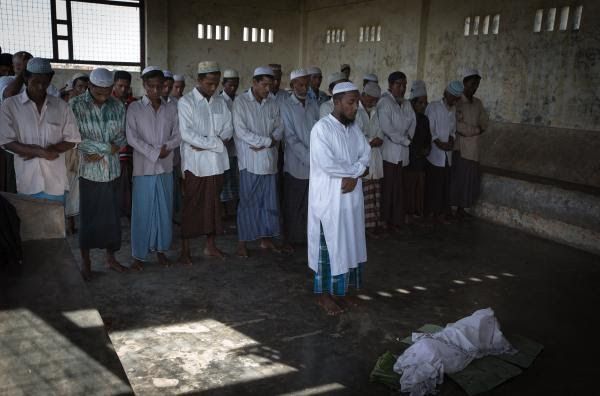BRUTALITY IN BURMA
Burma may be opening up to the world, the new darling of global investors eager to exploit its resources, but the Burmese government is clamping down hard on its own Muslim minority in the coastal Rakhine state.
Pulitzer Center grantee Jason Motlagh, in a dispatch for Time, reports that malnutrition and disease are rampant in camps where tens of thousands of Muslim Burmese, known as Rohingya, have been forcibly confined “for their own protection” against rampaging Buddhist mobs.
The government is deliberately obstructing humanitarian aid deliveries to the camps. “For years, the Rohingya have been denied citizenship in Buddhist-majority Burma, and have faced severe restrictions on marriage, employment, health care and education,” writes Jason. “Now, it seems, the Burmese authorities are determined to starve and sicken the Rohingya out of existence.”
FUN AND GAMES IN BRAZIL
With the U.S. soccer team's hopes still alive in Brazil, you might want to check out Pulitzer Center grantee Matthew Niederhauser’s erudite World Cup blog featured in The New Republic. Matthew is an astute observer of the beautiful game, but for this project he focuses not on match scores but on how the Brazilian government is using the country’s love for the game to cover up increasing social inequalities and corruption on a mass scale.
Writing from Natal ahead of the U.S. team’s victory against Ghana, Matthew notes that “the World Cup opened with downpours, bus strikes, an unfinished $400 million stadium, a barely finished airport, and broken promises over other infrastructure and social welfare programs that were supposed to be implemented before the tournament—more glaring reasons why Brazilians are more than displeased with how the federal government is managing the whole affair.”
